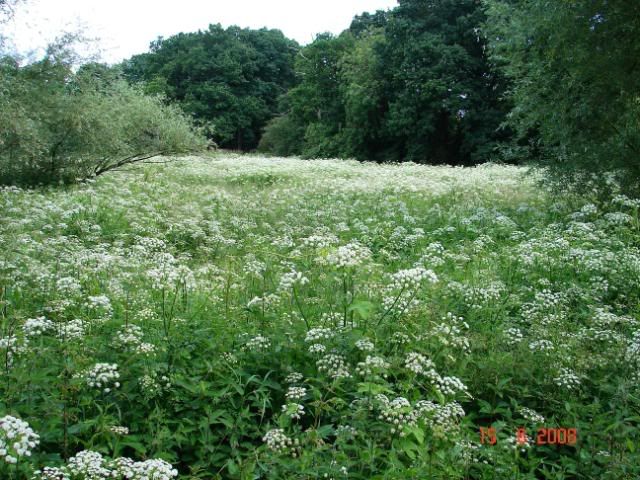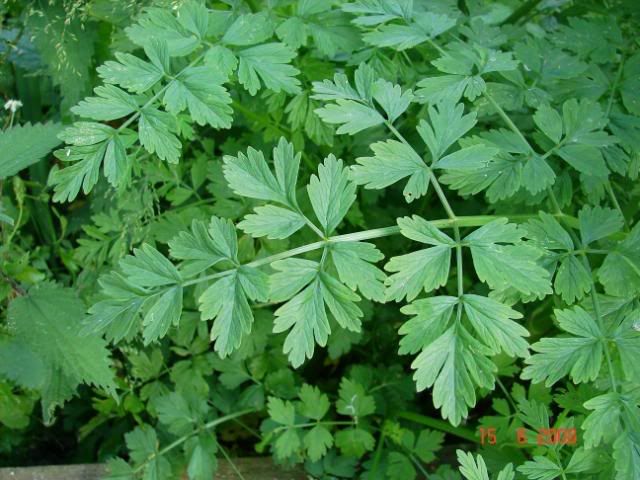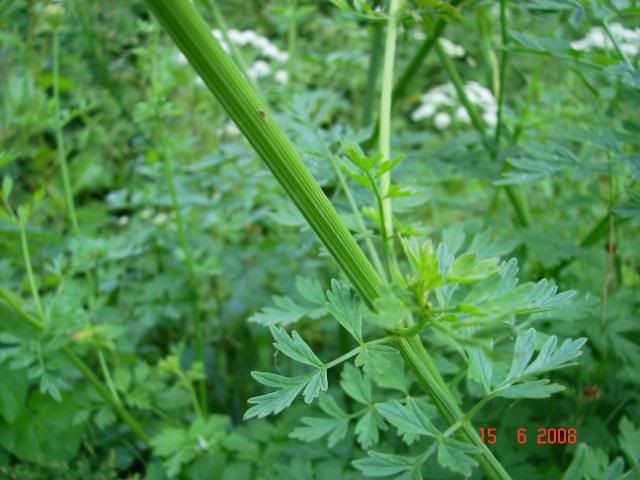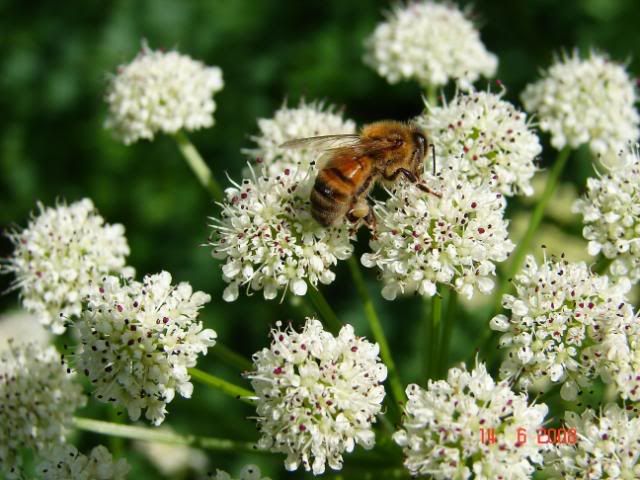Have noticed that hemlock water dropwort is having a very good year...
For those that don't know about it, it is one of, if not 'the' most poisonous plant we have growing in the UK, proberbly Europe too. It is deadly if you ingest any of the plant.
It grows around water sources and many river banks are covered by it at the mo. Here is a field full of the stuff that I saw this weekend..

Here is a close up of the leaves..

And the stem..

And the flower..

I have been told that you should not even drink from the water that has hemlock water dropwort growing out of it, it is that poisonous, or even eat edible plants that are growing near it.
I noticed many insects on the flowers, including the honey bee in the photo, which leads me to a question... Would the honey be ok, if the bees are gathering the pollen from the plant...?
Please be careful on or near water at the mo.That includes your dogs too...
For those that don't know about it, it is one of, if not 'the' most poisonous plant we have growing in the UK, proberbly Europe too. It is deadly if you ingest any of the plant.
It grows around water sources and many river banks are covered by it at the mo. Here is a field full of the stuff that I saw this weekend..

Here is a close up of the leaves..

And the stem..

And the flower..

I have been told that you should not even drink from the water that has hemlock water dropwort growing out of it, it is that poisonous, or even eat edible plants that are growing near it.
I noticed many insects on the flowers, including the honey bee in the photo, which leads me to a question... Would the honey be ok, if the bees are gathering the pollen from the plant...?
Please be careful on or near water at the mo.That includes your dogs too...
